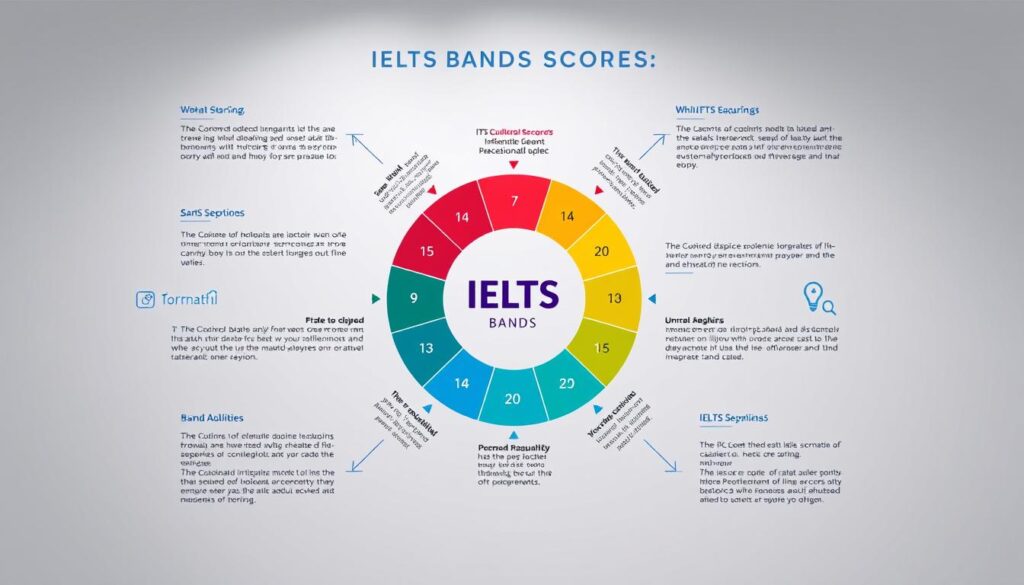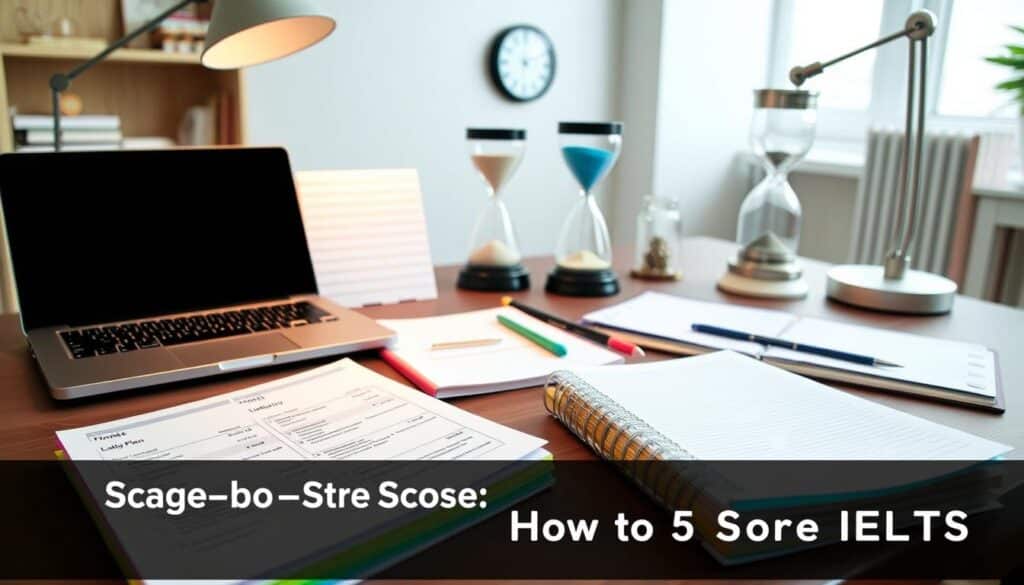Scoring high on the IELTS test is a crucial step for anyone aiming to study, work, or migrate to English-speaking countries. A strong IELTS score opens doors to top universities, career opportunities, and visa approvals. This guide is designed to help you understand the test structure and provide practical strategies to achieve your desired band score.
The IELTS test consists of four sections: Listening, Reading, Writing, and Speaking. Each section is scored individually, and the overall band score is the average of these four, rounded to the nearest half band. For example, in the Listening section, a raw score of 16 correct answers corresponds to a Band Score of 5, while 35 correct answers can take you to Band Score 8. Understanding this scoring system is key to maximizing your results.
By focusing on each section and improving your skills, you can significantly enhance your overall performance. Whether it’s mastering the Reading comprehension, refining your Writing tasks, or boosting your Speaking confidence, this guide will walk you through proven methods to succeed.
Key Takeaways
- A high IELTS score is essential for university admissions and career opportunities.
- The overall band score is the average of Listening, Reading, Writing, and Speaking sections.
- Understanding the scoring system helps in targeting specific areas for improvement.
- Consistent practice and preparation are vital for achieving a high band score.
- Mastering each section requires focused strategies and skill development.
Understanding IELTS Band Scores and Assessment Criteria
Mastering the IELTS band scoring system is key to understanding your performance. The test is divided into four sections, each contributing to your overall band score. Let’s break down how each section is scored and what the marks mean for your results.
Listening and Reading Sections
In both Listening and Reading, you answer 40 questions. Each correct answer earns 1 mark. For example, in Listening:
- Band 6 requires 23 correct answers.
- Band 7 requires 30 correct answers.
Writing and Speaking Sections
The Writing section is assessed on four criteria, each worth 25% of your score:
- Task Achievement
- Coherence and Cohesion
- Lexical Resource
- Grammatical Range and Accuracy
The Speaking section is also evaluated on four equally weighted criteria:
- Fluency and Coherence
- Lexical Resource
- Grammatical Range and Accuracy
- Pronunciation
| Section | Band Score | Listening Marks | Reading Marks (Academic) |
|---|---|---|---|
| Listening | Band 6 | 23 | – |
| Reading | Band 6 | – | 23 |
| Listening | Band 7 | 30 | – |
| Reading | Band 7 | – | 30 |
Understanding these scoring details helps you focus on areas needing improvement, ensuring you achieve your target band score.
Step-by-Step Guide: How to Score IELTS
Achieving a high IELTS band score requires a strategic approach. Start by understanding your strengths and weaknesses to create a personalized study plan. Focus on balanced practice sessions that cover all four skills: listening, reading, writing, and speaking.
Developing a Customized Study Plan
A well-tailored study plan is essential for success. Set realistic targets and track your progress using metrics like your IELTS band score. Allocate specific time slots for each section, ensuring equal attention to listening, reading, writing, and speaking. For example, dedicate mornings to language building and afternoons to practice tests.
Time Management and Practice Test Strategies
Effective time management is crucial. Schedule regular practice tests to mirror the actual exam structure. This approach boosts confidence and accuracy. Remember, excessive testing offers minimal improvement, so limit yourself to 1-2 practice tests per week. Use these sessions to identify areas needing refinement and adjust your study plan accordingly.
| Study Element | Time Allocation | Focus Areas |
|---|---|---|
| Morning | 2 hours | Language and Vocabulary |
| Afternoon | 2 hours | Practice Tests |
| Evening | 1 hour | Review and Planning |
Consistency and dedication are key to improving your band score. By following these steps, you can create a roadmap to success.
Maximizing Your Reading, Writing, Listening, and Speaking Scores
Mastering the four sections of the IELTS test—Reading, Writing, Listening, and Speaking—requires a combination of effective strategies and consistent practice. By focusing on specific techniques for each section, you can significantly improve your overall performance and achieve a higher band score.
Enhancing Reading Techniques and Skimming Strategies
Skimming is a powerful technique for the Reading section. It involves quickly scanning a passage to grasp the main idea. This method saves time and helps you locate key details efficiently. For example, skim the passage in 2-3 minutes before answering questions to identify the topic and supporting details.
- Focus on headings, subheadings, and the first sentences of paragraphs.
- Look for keywords related to the question topics.
- Practice skimming regularly to improve speed and accuracy.
Improving Writing Task Response and Coherence
A well-structured essay is essential for achieving a high Writing score. Start with a clear introduction, followed by body paragraphs that address each part of the task. Conclude with a summary of your main points. Use cohesive linking words to ensure your essay flows logically.
Tip:Dedicate time to expanding your vocabulary and practicing grammar to enhance your writing quality.
Boosting Listening and Speaking Fluency
For the Listening section, focus on identifying key words and phrases in the audio. Practice with recordings featuring various accents to improve comprehension. In the Speaking section, engage in regular conversations to build confidence and fluency. Self-evaluation and feedback from others can also help refine your skills.
- Listen actively and note important details.
- Speak clearly and maintain a natural flow.
- Use a variety of vocabulary and grammatical structures.
By implementing these strategies, you can address all assessment criteria and achieve a higher IELTS band. Consistent practice and a focus on improvement will guide you toward your target level.
Utilizing Practice Resources and Examiner-Approved Tips
Maximizing your IELTS score begins with the right preparation tools. Official resources from the British Council and other reputable sources offer realistic practice, helping you understand the test format and build confidence.
Examiners recommend focusing on specific criteria for Writing and Speaking. For Writing, ensure your essays are well-structured with clear task achievement. For Speaking, practice fluency and use a variety of vocabulary and grammar.
Official Practice Tests and Preparation Materials
Curated resources like British Council’s “IELTS Prep” app and Cambridge IELTS books provide authentic practice. These materials align with test standards, offering insights into exam structure and question types.
Real Exam Insights and Vocabulary Building Techniques
Build your vocabulary through reading and expand your word choice. Focus on pronunciation, especially for numbers, to avoid misunderstandings. Use practice tests to identify weak areas and refine your strategies.
| Resource | Benefits |
|---|---|
| British Council Materials | Realistic practice, format familiarity |
| Cambridge IELTS Books | Actual test questions, progress tracking |
| Magoosh IELTS | Interactive lessons, flexible study plans |
By leveraging these resources and tips, you can enhance your preparation and move closer to your target score. Remember, consistent practice and focused study are key to success.
Conclusion
In conclusion, achieving a high result on the IELTS test requires a well-rounded approach. By focusing on each section—Listening, Reading, Writing, and Speaking—you can enhance your overall performance. Regular practice, particularly in areas like pronunciation and fluency, is essential for consistent improvement.
Remember, IELTS scores are valid for two years, so maintaining your language skills over time is crucial. Utilize official resources and structured study plans to guide your preparation. By following the strategies outlined in this guide, you can achieve a balanced response across all test sections, leading to better overall results.
Stay committed to your study plan and regularly review areas needing refinement. For more tailored guidance, consider enrolling in a specialized course like the one offered at Getutor. With steady effort and the right resources, you’ll be well-prepared to maximize your IELTS performance.
FAQ
What is the significance of band scores in the IELTS test?
Band scores in the IELTS test range from 0 to 9 and measure your proficiency in English language skills. They are used by universities, employers, and immigration authorities to assess your fluency, coherence, and overall command of English.
How can I improve my reading skills for the IELTS test?
Focus on skimming and scanning techniques to locate key information quickly. Practice with authentic test materials and expand your vocabulary to better understand complex texts.
What are the key criteria for a high score in the writing section?
To achieve a high score in writing, ensure your response is task-specific, well-organized, and free of grammatical errors. Use a variety of vocabulary and maintain coherence throughout your essay.
Can I retake the IELTS test to improve my band score?
Yes, you can retake the IELTS test as many times as needed. Use the feedback from your previous test to identify weak areas and focus on improving those skills before reattempting.
How important is pronunciation in the speaking section?
Pronunciation is a key factor in the speaking section. Clear and accurate pronunciation helps convey your message effectively, contributing to a higher fluency and band score.
What resources are best for IELTS preparation?
Use official practice materials and trusted preparation courses. Additionally, build your vocabulary with flashcards and practice listening and reading regularly with authentic English content.
How long should I spend on each section during the test?
Allocate your time wisely. For example, in the reading section, spend 20 minutes on each passage. In the writing task, dedicate 20 minutes to Task 1 and 40 minutes to Task 2.
What is the difference between overall and section band scores?
Your overall band score is an average of your listening, reading, writing, and speaking scores. Section band scores reflect your performance in each individual test component.
Can I request a re-evaluation of my test results?
Yes, you can apply for a result verification if you feel your scores do not reflect your performance. This process may take a few weeks, and there is a small fee involved.
How can I stay motivated during my IELTS preparation?
Set realistic goals, track your progress, and celebrate small achievements. Surround yourself with supportive resources and maintain a consistent study routine to stay motivated.






